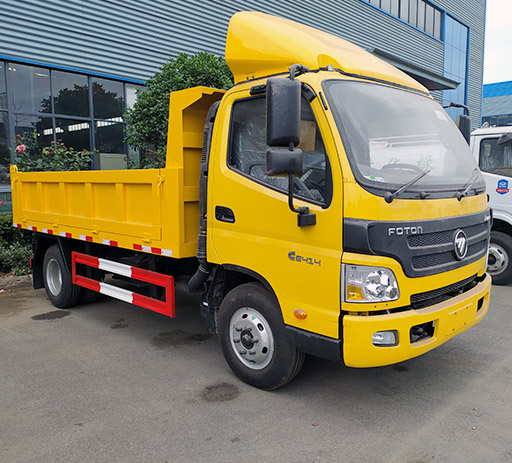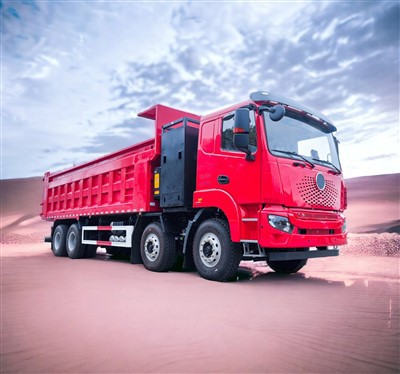Understanding the Capacity of Water Trucks: A Comprehensive Guide

Water trucks play an essential role in various industries, from construction to agriculture and municipal services. Understanding the capacity of a water truck is crucial for efficient planning and tendering processes.
What is a Water Truck?
A water truck is a vehicle that transports and delivers water for different purposes. These trucks are equipped with large tanks and have various applications, whether in a construction site, fire control, or dust suppression for roads. The size and capacity of these trucks vary significantly based on their intended use.

Understanding Water Truck Capacity
The capacity of a water truck refers to the volume of water it can carry, typically measured in gallons or liters. Here are some of the standard capacities you might encounter:
- Small Water Trucks: 1,000 to 2,500 gallons
- Medium Water Trucks: 2,500 to 5,000 gallons
- Large Water Trucks: 5,000 to 10,000 gallons
- Extra-Large Water Trucks: 10,000 gallons and above
Factors Influencing Water Truck Capacity
1. Type of Vehicle
Water trucks come in various sizes, based on their chassis and tank capacity. Heavy-duty trucks carry larger loads, while lighter trucks are suited for urban areas or smaller projects.
2. Intended Use
The specific application will often dictate the type of water truck and its configuration. For instance, water trucks for dust control may have specialized spray features, while those for firefighting may have larger tanks and powerful pumping systems.
3. Local Regulations
Some regions have legal restrictions about the maximum allowable capacity for water trucks on public roads, which can influence the choice and configuration of the truck.
4. Tank Design
The design of the tank—whether cylindrical, rectangular, or custom-shaped—also affects the truck’s total capacity. Efficient space utilization in a tank can maximize the amount of water carried.
Common Types of Water Trucks
1. Standard Water Trucks
Standard water trucks are versatile and widely used in various industries. They provide reliable transportation for water in construction, maintenance, and landscaping.
2. Vacuum Water Trucks
Vacuum water trucks are equipped with pumps that allow for suction and removal of wastewater, making them essential for hauling sewer water or liquid waste.
3. Tanker Trucks
Tanker trucks have a significant carrying capacity, often exceeding 10,000 gallons, primarily used for transporting water over long distances.

Examples of Applications
- Firefighting operations: Quickly transports significant quantities of water.
- Construction sites: Provides water for compaction and dust control.
- Agricultural sprayers: Delivers water for irrigation or crops.
Calculating Water Truck Capacity
Calculating the capacity is essential for determining efficiency and cost of operation. Here’s how you can do it:
Step-by-step Calculation
- Measure the tank dimensions: If the tank is cylindrical, use the formula: π × radius² × height.
- Convert the volume: If measured in cubic feet, multiply by 7.48 to convert to gallons.
- Factor in usable space: Consider the space lost due to pump design and accessories.
Capacity Example Table
| Tank Shape | Dimensions (ft) | Estimated Capacity (Gallons) |
|---|---|---|
| Cylindrical | 4 ft diameter, 10 ft height | 1,256 |
| Rectangular | 6 ft x 4 ft x 6 ft | 1,440 |
Bidding and Contracting for Water Trucks
When planning to use a water truck for a project, consider these aspects during the bidding process:
1. Define Your Needs
Clearly outline the volume of water required and the frequency of deliveries. This clarity helps in selecting the right truck type.
2. Supplier Credentials
Review the experience and reliability of the vendor. Look for reviews or case studies that showcase their service quality.
3. Pricing Models
Understand the pricing structure, including any per-gallon costs, set fees for delivery, and any hidden charges.

4. Understand Terms and Conditions
Ensure you thoroughly read and understand the terms of service, including cancellation policies or guarantees for delivery.
Maintenance Tips for Water Trucks
Regular maintenance ensures longevity and efficiency in water trucks. Here are some maintenance tips:
1. Regular Tank Cleaning
Keep the water tank clean to prevent contamination and ensure water quality. Schedule routine clean-ups based on usage frequency.
2. Check for Leaks
Periodically inspect the tank and hoses for leaks, which can result in water loss and reduce the truck’s efficiency.
3. Tire Maintenance
Regularly inspect the tires for wear and ensure they are properly inflated, as this affects fuel efficiency and overall performance.
4. Hydraulics Check
Since many water trucks utilize hydraulic systems for their pumps, check the hydraulics and fluid levels regularly to prevent operational failures.
Safety Considerations
Managing a water truck requires attention to safety. Here are essential safety tips to keep in mind:
1. Training Operators
Ensure operators are adequately trained in driving and maintaining water trucks, especially if heavy loads are involved.
2. Wear Safety Equipment
Operators should wear appropriate personal protective equipment (PPE), including gloves, helmets, and high-visibility clothing.
3. Conduct Pre-Trip Inspections
Before each trip, perform a thorough inspection of the truck, looking for issues and checking water levels to ensure everything is in order.
FAQs about Water Truck Capacity
1. What is the typical size of a water truck?
Water trucks typically range from 1,000 gallons to 10,000 gallons in capacity, with some specialized models exceeding this amount.
2. How do I choose the right water truck for my project?
Consider the volume of water needed, the terrain, and the specific application when selecting a water truck.
3. Are there regulations for water trucks on public roads?
Yes, regulations can vary by region. It’s essential to check local laws regarding weight limits and capacity for water trucks.
4. Can I customize the tank of a water truck?
Yes, many manufacturers offer customization options for tank shapes, sizes, and features to suit specific needs.
5. How often should I perform maintenance on a water truck?
Regular maintenance checks should be conducted monthly, with detailed inspections of critical components every few months, or after heavy use.
6. What is the best delivery method for a water truck?
Delivery methods can vary. Larger projects may benefit from a schedule with multiple trips, while smaller projects can often utilize on-demand usage.
